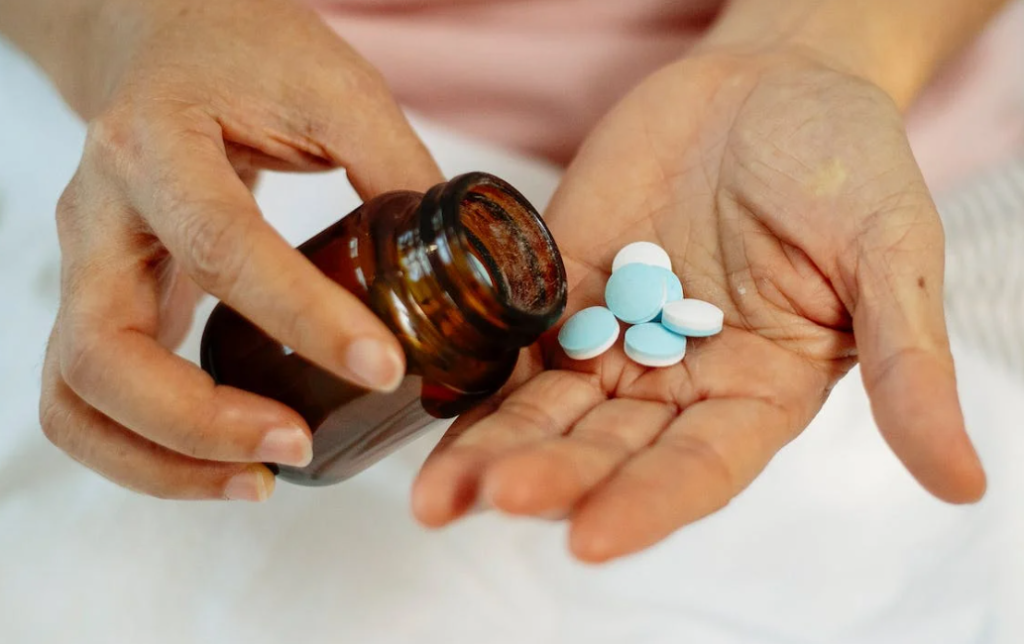Can Positivity Cure Diseases?
Did you know that staying positive can also help to relieve the pain of being diagnosed with any illness?

Selfpause Affirmation App
Download the app to get 1,000’s of affirmation meditations and everything you need to write, record and listen to your own.
The idea of staying positive in times of illness can be incredibly difficult, and it can put pressure on an already overtaxed psyche. For many cancer patients, the idea of staying positive can even make them feel as though they should keep their emotions hidden. However, the idea of staying positive can also be a good way to get some relief from the suffering that comes with being diagnosed with cancer.
The Placebo Effect

The placebo effect is an extremely powerful therapeutic tool that has the potential to treat or cure diseases. Researchers have demonstrated that a placebo can enhance nerve cell signaling and can even cause changes in brain chemistry similar to the effects of a drug. These studies have emphasized the importance of the placebo effect in clinical trials. One study from the University of British Columbia showed that a placebo could increase dopamine levels in the brain, a neurotransmitter specifically deficient in patients with Parkinson’s disease.
In some medical research studies, participants take a sugar pill instead of a real drug. This helps scientists determine whether the drug or treatment will have a positive or negative effect. Researchers can then compare the results of these studies to the results of the standard treatment to determine whether the new drug is effective or not.
The placebo effect has many medical applications and is often a crucial part of medical studies. Placebos are used to test the efficacy of treatments and to reassure patients. Placebos are also used in athletics to improve performance. However, there are a number of potential controversies when using placebos. In the future, advanced medical researchers may try to use the placebo effect to cure diseases.
One of the most powerful effects of placebos is their ability to affect a person’s emotions. The placebo effect can have a positive impact on a person’s health and happiness. The placebo effect is often used in medical research because it helps researchers understand the physiological effects of new drugs.
A placebo can also change the physiology of the brain. By affecting the brain, a placebo can change the way that a person thinks about an illness. If a person thinks a doctor is kind and compassionate, he or she will feel more optimistic about his or her recovery.
Various studies have shown that placebos can treat a number of different symptoms. These studies have shown that they can treat pain, irritable bowel syndrome, asthma, sleep disorders, depression, and menopause. The reason for this is that the placebo triggers a biochemical response in the brain. If the individual has an expectation of a specific outcome, the placebo will make it more likely for the brain to respond in the same way.
The Placebo Effect is Effective in up to 30% of its Applications

There are divergent opinions about whether the placebo effect is effective in all applications. One study found that 25 percent of physicians believed placebos were effective in treating certain conditions. Another study found that up to half of patients accepted the use of placebos to treat certain illnesses. However, the placebo effect may be more powerful in children and adolescents.
The placebo effect in children is much greater than in adults, according to researchers. Possible explanations include the higher expectations of parents and increased media exposure. In addition, parents may focus attention on the symptoms of the child to make them feel better. Children may also be more sensitive to the placebo effect. A few experimental studies have been conducted to determine how the placebo affects the physiology of the placebo effect in children.
In addition to treating symptoms, the placebo effect may help people avoid experiencing unpleasant side effects, such as pain. It is also thought to help people deal with conditions such as fatigue and anxiety. It can even work when people know it is a placebo. For example, in a study in 2010, placebo pills helped patients with irritable bowel syndrome. Despite the fact that the patients knew they were taking a placebo, their symptoms decreased significantly.
More trials are needed to prove this hypothesis. The more trials conducted, the more data will be available. Furthermore, the placebo effect may be more effective in certain patients than in others. Nonetheless, it is important to note that there are ethical concerns associated with the use of placebos.
The placebo effect has been shown to be effective in up to 30% of applications. The placebo effect varies by culture. Some cultures experience a much lower placebo effect than other cultures. Northern Europe, for example, experiences the placebo effect to a higher extent. Similarly, the strength of the placebo effect varies according to the disease.
The placebo effect is most common in drug trials, especially those involving anti-anxiety drugs. One review of eight studies found that placebo antidepressants were as effective as their actual counterparts. This finding shows that physicians need to carefully evaluate their patient’s understanding of the placebo to avoid the risk of deception.
A placebo is a treatment that has no active ingredients, but the person taking it believes it will help. The word placebo derives from the Latin “I will please,” and it can be anything from sugar pills to a fake surgical procedure. Researchers have found that the placebo effect can change the course of an illness. In some cases, it even affects the course of recovery.
The placebo effect has been studied extensively, but it is still difficult to identify predictably which conditions respond to it. The most studied cases are chronic pain and psychiatric illnesses. Placebos are believed to be effective in such conditions because they are associated with a specific type of cognition. This cognition is related to the therapeutic agent, the administration situation, and the condition being treated.
It is not uncommon for patients to report better health after receiving placebo medication than those who receive the real thing. However, there are some cases when the placebo effect can be harmful. In these instances, researchers should compare a new intervention to an existing effective treatment. In addition to minimizing risk, it is also ethical to compare a new drug with an existing treatment that works.
Placebos are often used to study new medications. These studies are helpful in understanding the physiological and psychological effects of a new medication. However, a physician should not deceive a patient without gaining their consent. This can compromise the placebo effect and affect the outcomes of the study. So, it is important for healthcare professionals to evaluate patients’ autonomy. However, using placebos for research purposes is legal and does not require patient consent.
Since the mid-twentieth century, placebos have decreased in clinical use. But the placebo phenomenon is entering a new phase in this third millennium. As the scientific field becomes more aware of the therapeutic environment, physicians can use placebos in more ethical ways.
Our Top FAQ's
There is limited scientific evidence to support the idea that positivity can cure diseases. While some research suggests that a positive outlook and attitude may be associated with better physical and mental health outcomes, it is important to recognize that these factors are just one aspect of overall health and well-being. Many diseases and health conditions have complex underlying causes and require a range of interventions, including medical treatment, to manage effectively.
There is some evidence to suggest that a positive outlook and attitude may be associated with a range of health benefits. For example, studies have shown that people with a positive outlook may be less likely to experience stress, which can have negative effects on physical health. A positive outlook may also be associated with healthier behaviors, such as engaging in regular physical activity and maintaining a healthy diet.
There are several strategies that individuals can use to cultivate a more positive mindset and attitude towards their health and well-being. These may include:
- Practicing gratitude: Focusing on the things that we are grateful for can help shift our perspective and increase feelings of positivity.
- Engaging in activities that bring joy: Identifying and participating in activities that bring us joy can help to boost our mood and overall sense of well-being.
- Setting goals: Setting and working towards achievable goals can help us feel a sense of accomplishment and purpose, which can contribute to a positive outlook.
- Practicing mindfulness: Being present in the moment and paying attention to our thoughts and feelings can help us develop a more positive outlook.
There is some evidence to suggest that a positive attitude may be associated with better outcomes in medical treatment and the recovery process. For example, studies have shown that people with a positive outlook may be more likely to adhere to treatment regimens and may experience less stress during the recovery process. Additionally, a positive attitude may be associated with better immune function, which may contribute to faster and more complete recovery from illness.
It is important to recognize that while a positive outlook and attitude may be beneficial for overall health and well-being, they should not be relied upon as a primary approach to addressing or managing a health condition. Many health conditions require medical treatment and other interventions to manage effectively. It is important to work with a healthcare professional to develop a comprehensive plan for managing your health.
